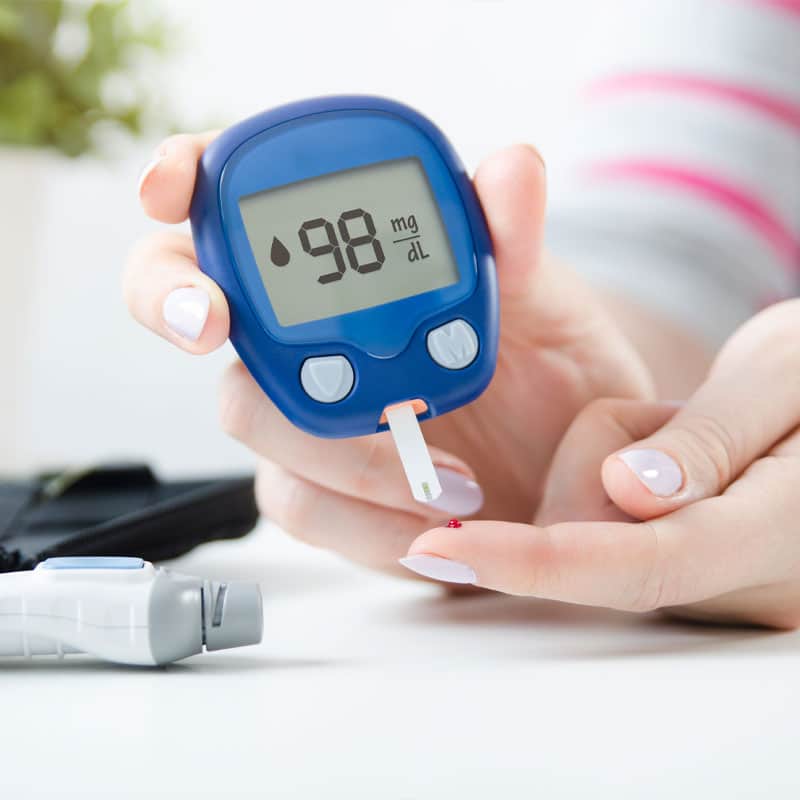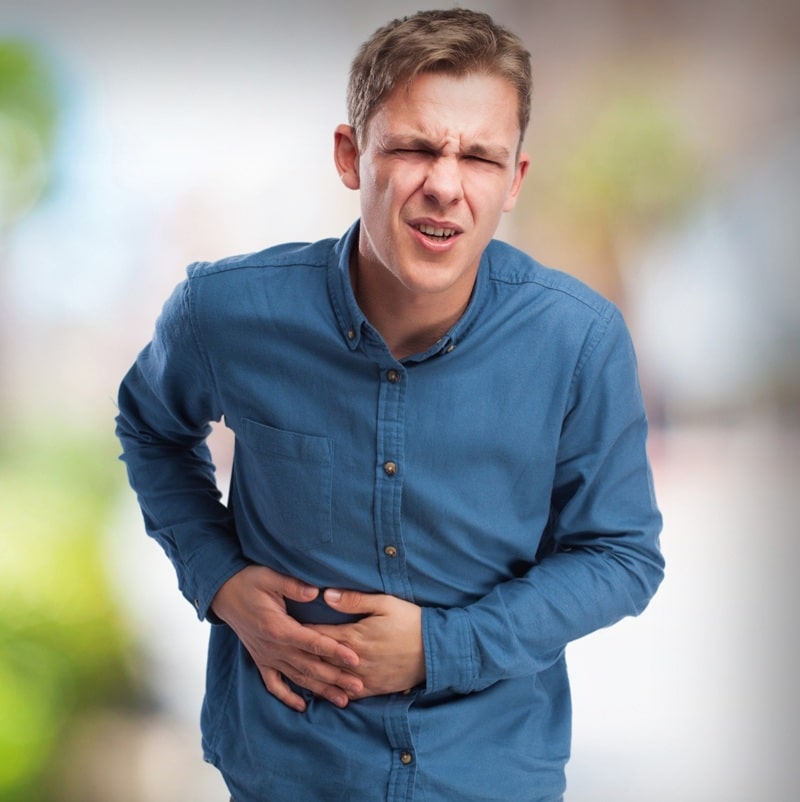What is Stomach Flu?
Viral gastroenteritis, or stomach flu, occurs when a virus attacks the stomach, small intestines, and large intestines, causing inflammation and uncomfortable symptoms. Many people mistakenly think that the influenza virus causes stomach flu. Instead, several viruses cause stomach flu, including-
- Norovirus—According to the CDC, Norovirus is the most common virus causing viral gastroenteritis. Between 19 and 21 million cases occur in the United States each year. The virus is spread through close contact with an individual with the virus, eating contaminated foods, touching contaminated surfaces, and touching one’s mouth. The most common symptoms are nausea, body aches, fever, and diarrhea.
- Rotavirus—Rotavirus is especially common in children because they are more likely to put a contaminated object in their mouth or touch a contaminated object and put their fingers in their mouth. Infants and children typically experience the worst symptoms. This virus causes vomiting, watery diarrhea, and loss of appetite.
- Adenovirus can affect individuals of any age. This viral infection typically spreads through the air (coughing or sneezing), contact with a contaminated object, or contact with an individual with the virus. The most common symptoms of adenovirus include runny nose, coughing, sore throat, pink eye, fever, and vomiting.
- Astrovirus commonly affects children. The virus spreads through close contact, food, or touching a contaminated surface. The most common symptoms of astrovirus are diarrhea, mild dehydration, stomach pain, and headache.
Viral Gastroenteritis is Contagious
Viral gastroenteritis is highly contagious. There are several different ways the virus can be spread, including:
- Close contact with an individual with the virus (i.e., eating or drinking after an individual, kissing, or other types of close contact)
- Coming in contact with a contaminated surface and touching your mouth
- Eating or drinking contaminated foods
- Foods that an individual with gastroenteritis has handled
- Foods that have come in contact with raw sewage
Risk Factors for Viral Gastroenteritis
Viral gastroenteritis affects individuals of every race, ethnicity, socio-economic status, and age; however, specific individuals are at an increased risk of viral gastroenteritis. These individuals include:
- Close Quarters—School or college students living in a dormitory or church can spread illness through their environment, thus increasing the risk of infection.
- Older Adults—People of older age, particularly those in nursing homes, are at an increased risk of a viral infection. As people age, their immune systems no longer function as well as they once did. Furthermore, individuals in nursing homes will come in close contact with others who may pass the virus on.
- Weak Immune System—People with AIDS/HIV, cancer (chemotherapy or radiation), or other medical conditions have a weakened immune system. They are at an increased risk of becoming ill.
- Young Children—Elementary-aged children are at an increased risk of developing viral gastroenteritis because their immune systems have not fully developed.
Symptoms of Stomach Flu
Stomach flu symptoms occur within a day or two of coming in contact with an individual with the infection or food/drink that someone has contaminated. The symptoms typically last up to ten days, depending on which virus caused your infections. The symptoms of this gastrointestinal viral infection include:
- Abdominal Cramping/Pain—Inflammation of the gastrointestinal tract, vomiting, diarrhea, and muscle aches can cause abdominal pain or cramping.
- Diarrhea—Watery diarrhea is often the most common symptom of this infection. It can be constant or intermittent throughout the infection.
- Fever—A low-grade fever is common in viral infections that attack the GI system.
- Headache—Individuals with viral gastroenteritis may experience a nagging headache that doesn’t respond to medication. Dehydration and low-grade fever often cause this headache.
- Muscle Aches—Viral infections commonly cause muscle aches due to dehydration, inflammation, and fever.
- Nausea—Another symptom that plagues sufferers is nausea. The inflammation in the gastrointestinal tract can slow down digestion, which can cause nausea.
- Vomiting—Many individuals will experience unrelenting vomiting for days when they have come in contact with a virus that attacks the gastrointestinal tract.
The main complication of viral gastroenteritis is dehydration, which occurs when the body loses fluid, salts, and minerals. One of the best ways to avoid dehydration is to try to replace the fluids and electrolytes lost from vomiting and diarrhea. Electrolyte-infused drinks can help combat dehydration and replace lost minerals.
Individuals with a weakened immune system, older age individuals, and young children are at an increased risk of becoming severely dehydrated. When this occurs, hospitalization may be necessary to replace lost fluids intravenously. Although rare, dehydration can lead to death if not treated.
Tips to Protect Against Stomach Flu
You can do several things to decrease your risk of stomach flu. Following these suggestions is especially important if someone in your home has been diagnosed with this GI illness. Protect yourself by:
- Handwashing—One of the most important ways to protect against stomach flu is to wash your hands frequently. Use warm water and plenty of soap, and rub your hands vigorously for 20 seconds. Be sure to scrub under fingernails, around cuticles, between fingers, and in the creases. If you cannot use water and soap, use hand sanitizer.
- Disinfecting—If someone in your home experiences gastroenteritis symptoms, disinfect common touch surfaces often. For example, you should disinfect your doorknobs, faucet handles, toilets, telephones, refrigerator handles, and remote controls multiple times daily.
- Laundering—Wash soiled clothing immediately in the hottest water possible. Remember to wash your hands when you load the clothes in your washing machine to avoid cross-contamination.
- Avoidance—Individuals with viral gastroenteritis should not prepare food or drink until 48 hours after all symptoms have resolved. They should also avoid close contact with anyone who has the virus.
- Vaccination—An effective vaccine protects against rotavirus, one of the leading causes of gastroenteritis. This vaccine is typically given during the first year of life and effectively minimizes symptoms.
- Travel—Traveling to a foreign country increases the risk of contracting viral gastroenteritis. To minimize this risk, drink and brush your teeth with bottled water, avoid raw or undercooked foods, and avoid ice in your drinks.
Treatment for Stomach Flu or Viral Gastroenteritis

Viral gastroenteritis causes many symptoms, including vomiting, diarrhea, fever, cramping, and headaches. Our functional medicine providers specialize in digestive disorders and use conventional medicine practices to help improve your health, reduce symptoms and the risk of dehydration, and help you overcome a GI infection quickly. Because this is a viral infection, antibiotics will not help. Your practitioner will also recommend certain foods and warn against others while dealing with a GI viral infection.
- Dehydration—Functional medicine providers focus on preventing dehydration when treating viral gastroenteritis. Over-the-counter rehydration solutions replace the essential fluids and electrolytes commonly lost with vomiting and diarrhea.
- Diet—A bland diet can help ease nausea and provide nutrients to the body. The BRAT (bananas, rice, applesauce, and toast) diet helps during the early stages of viral illness. Once you begin to recover, you can add other bland foods. Avoid sugary, high-fat foods while you are sick.
- Rest—One of the best things you can do when suffering from a viral infection is to get plenty of rest. When you rest, your body can fight the disease better and reduce the risk of weakness and tiredness.
- Heat Therapy—A heating pad can help relieve stomach cramps. However, avoid leaving one on your skin for too long. We recommend limiting usage to no more than 15 minutes at a time.
- Probiotics—Viral gastroenteritis can cause the bacteria in your digestive tract to become imbalanced. Consuming probiotic-rich foods like yogurt and a probiotic supplement can rebalance the flora in your GI system and relieve diarrhea, nausea, and vomiting.
- Herbs—Ginger and mint can help soothe your upset stomach and ease nausea.




















